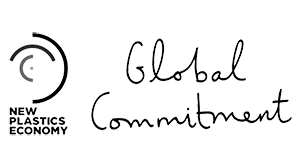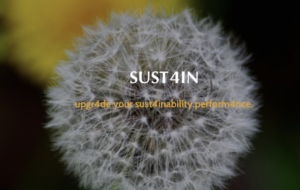White on black: Pope Francis meets Oil Executives

“When you go to the Vatican and see the Pope, it changes the tone of the debate. It makes it much more serious, and much more real.” Lord Browne, former CEO at BP, this weekend.
Madrid, 11 June 2018. A very unusual and very high-level meeting took place at a 16th-century villa in the Vatican gardens this weekend. Even if you are not Catholic or do not profess any religion, please pay attention.
Pope Francis summoned more than 40 oil and energy executives, plus big money managers, to discuss climate change and other sustainability issues at a Conference called “Energy Transition and Care for our Common Home”.
Apocalypses is not here, and the executives did not need to confess first, but the meeting was a first ever as it seems that the present Christian leader is more flexible than Matthew the Apostle, who wrote that “No one can serve two masters. Either you will hate the one and love the other, or you will be devoted to the one and despise the other. You cannot serve both God and Mammon.” (Matthew, 6:24)
The list of attendees has not been unveiled, but according to the New York Times, among those present were the chairman of Exxon Mobil, the chief executive of Eni, the chief executive of BP plus the likes of Larry Fink, the BlackRock chief, as reported by the Financial Times. Some of them can be spotted at the picture above, as well as the former Chairman of Shell and Anglo American, Sir Mark Moody-Stuart and, of course, the former CEO of BP, Lord John Browne.
What exactly was discussed over the two-days meeting has not been revealed either, but in his speech, Pope Francis told the business and finance leaders that climate change was a challenge of “epochal proportions” and said that the world needs to come up with an energy mix that combats pollution, eliminates poverty and promotes social justice.
The leader of more than one billion Catholics and a global “influencer” beyond his religion explicitly mentioned the Sustainable Development Goals and the complexity of sustainability.
“We know that the challenges facing us are interconnected. If we are to eliminate poverty and hunger, as called for by the Sustainable Development Goals, the more than one billion people without electricity today need to gain access to it. But that energy should also be clean, by a reduction in the systematic use of fossil fuels. Our desire to ensure energy for all must not lead to the undesired effect of a spiral of extreme climate changes due to a catastrophic rise in global temperatures, harsher environments and increased levels of poverty.”
Meeting the energy needs of everyone on Earth, the popular Twitter-Era Pope said, must be done in ways “that avoid creating environmental imbalances resulting in deterioration and pollution gravely harmful to our human family, both now and in the future.”
The Pope concluded his address quoting from his now famous (but yet to be read by many) Encyclical Laudato Sì: “There is no time to lose: We received the earth as a garden-home from the Creator; let us not pass it on to future generations as a wilderness”.
We have faith that people from all beliefs, including those praying Mammon only or still doubtful of the urgency of a sustainable and fair energy transition, take note and start implementing ambitious and urgent plans to meet the Paris Agreement and the Sustainable Development Goals.

We are a network of expert professionals on sustainability.
SUST4IN apoya:








